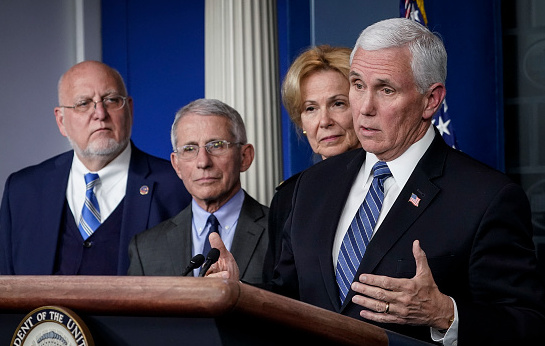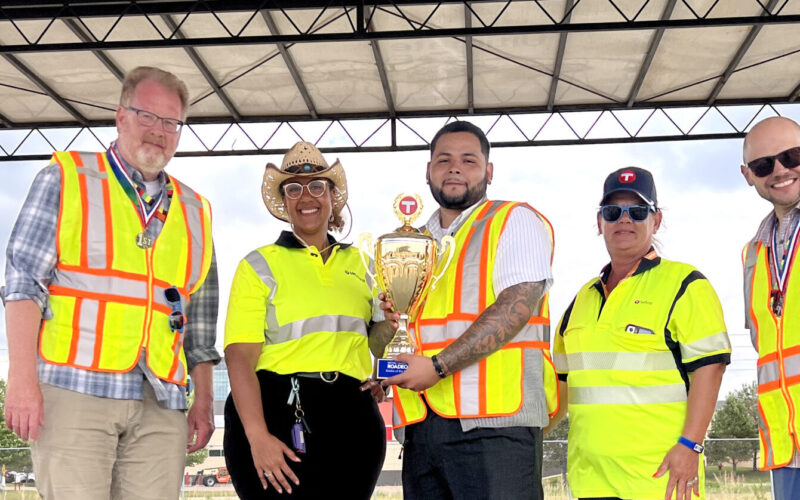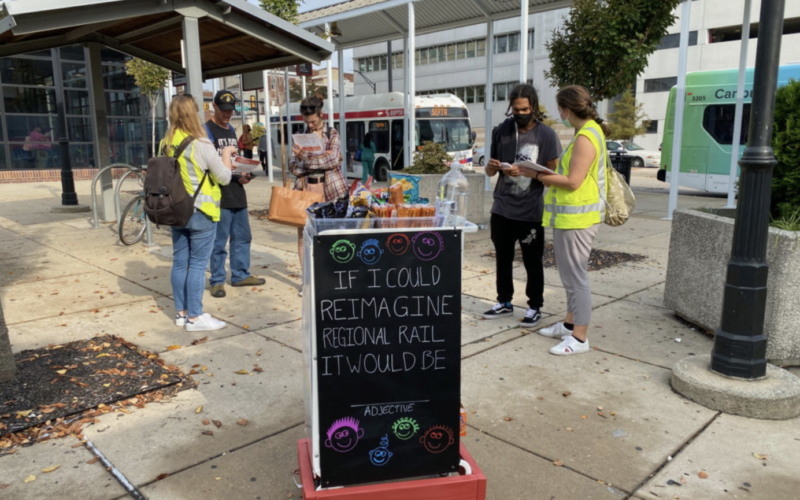
Photo: Drew Angerer/Getty Images
Dozens of unions, business groups, economic justice organizations, and local transit advocates from across the nation wrote yesterday to Vice President Mike Pence and Dr. Deborah Birx, coordinator of the White House Coronavirus Task Force, demanding better federal coordination to provide personal protective equipment (PPE) for transit workers.
As of this week, the coronavirus has claimed the lives of nearly 100 transit workers in the United States.
The victims include Scott Ryan, 41, a bus operator at Community Transit in Snohomish County, Washington; Patrick Patoir, 57, an MTA worker in New York for 33 years; Jason Hargrove, 50, a Detroit bus operator; Eugenia Weathers, a school bus driver in Lexington, Kentucky; and Michael Hill, a conductor and 30-year SEPTA veteran in Philadelphia.
The federal government can and must take stronger steps to prevent such loss of life.
Bus and train operators, maintenance workers, and cleaning staff at transit agencies around the country are putting their lives on the line as they enable essential travel for millions of Americans, ensuring the continued provision of food, medical care, and other basic goods and services during the COVID-19 pandemic. Without strong federal coordination to procure PPE for transit workers, they face needless risks on the job.
Based on guidance from infectious disease experts, the organizations demand the White House coordinate provision of N95 masks and other protective gear for frontline transit workers whose duties put them in close proximity to passengers, or require exposure to hazardous disinfectants. The groups also urge the CDC to issue stronger guidance for transit agencies, including recommendations on how to ventilate transit vehicles to minimize the risk of COVID-19 transmission.
These measures must be put in place to protect the transit workforce, which in turn will strengthen the overall effort to control the pandemic and minimize the spread of COVID-19. Nearly 3 million Americans classified as essential workers typically commute on transit, according to a TransitCenter analysis of U.S. Census data.
Protective gear for transit workers will have a strong multiplier effect, since reducing risk will increase the availability of the transit workforce, leading to greater provision of transit service, less crowding on transit vehicles, and lower rates of transmission among transit riders and thus the general population.
The alliance signing on to the letter reflects the broad public interest in protecting transit workers, encompassing labor, business, transportation, economic justice, environmental, and community-based organizations from dozens of states.
Supply chain issues affect every industry seeking protective gear. However, the need for transit workers is so urgent, and the consequences of further delay so dire, that federal action must be pursued as soon as possible. These protections will save the lives of transit workers, as well as the lives of nurses, doctors, food distribution workers, and other essential workers who rely on transit.
“Transit workers deserve every protection the government can muster,” said TransitCenter Executive Director David Bragdon. “Better coordination and provision of equipment will protect the health of hundreds of thousands of transit workers, and keep millions of other workers safe on their way to essential jobs.”
“More than 300 of the transit agencies where our members work have failed to implement critical changes needed to keep their workers and riders safe, even as a second wave of this deadly virus sweeps across the continent,” said ATU International President John Costa. “We are proud to carry emergency service, healthcare, grocery, and retail workers, and those who need care. But, as ATU International President, I cannot in good conscience encourage my members to go into the line of fire without the armor and provisions they need.”
Read the full letter, including list of recommendations and signatories.
 New TransitCenter Report: To Solve Workforce Challenges Once and For All, Transit Agencies Must Put People First
New TransitCenter Report: To Solve Workforce Challenges Once and For All, Transit Agencies Must Put People First
TransitCenter’s new report, “People First” examines the current challenges facing public sector human resources that limit hiring and retention, and outlines potential solutions to rethink this critical agency function.
Read More A Transit Revolution in Philadelphia?
A Transit Revolution in Philadelphia?
The Southeastern Pennsylvania Transportation Authority (SEPTA) has been working throughout the pandemic on several system-wide planning initiatives that have the potential to transform transit service in and around the city of Philadelphia.
Read More